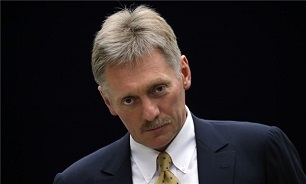Tehran's Roll-Back on N. Deal Provoked by External Pressure on Iran
 "We see the consequences [of rash US moves towards Iran]. Of course, Russian diplomats will continue to discuss this topic with our European partners in order to work on preserving the viability of this accord", he told journalists.
"We see the consequences [of rash US moves towards Iran]. Of course, Russian diplomats will continue to discuss this topic with our European partners in order to work on preserving the viability of this accord", he told journalists.
Peskov also stressed that it is premature to talk about imposing sanctions against Tehran following its suspension of some of its obligations.
Washington withdrew from the internationally-endorsed 2015 nuclear deal with Iran, reimposed the toughest-ever sanctions against the country and started a plan to zero down Tehran's oil sales.
Under the nuclear agreement reached between Iran and six world powers in July 2015, Tehran undertook to put limits on its nuclear program in exchange for the removal of nuclear-related sanctions.
In 2018, all the other signatories — Russia, China, Germany, France, the UK, and the EU — refused to follow the US example and confirmed their commitment to the accord, trying to save the deal with the Islamic Republic.
Iranian officials then warned that the European Union’s failure in providing the needed ground for Tehran to enjoy the economic benefits of the nuclear deal would exhaust the country's patience.
Yet, Iran continued compliance with deal, stressing that the remaining signatories to the agreement had to work to offset the negative impacts of the US pullout for Iran if they want Tehran to remain in compliance.
Europeans' honesty in dealing with the Iran nuclear deal has always been seriously doubted by Iranian masses that were discontent with talks with European states.
Almost a year later, however, the EU failed to provide Tehran with its promised merits. Then, on Friday the US state department announced that it had not extended two waivers, one that allowed Iran to store excess heavy water produced in the uranium enrichment process in Oman, and one that allowed Iran to swap enriched uranium for raw yellowcake with Russia.
Until now, Iran was allowed to ship low-enriched uranium produced at Natanz to Russia before it hit the 300-kg limit and the US measure leaves no way for Tehran other than exceeding the ceiling for storing the enriched uranium in violation of the 2015 nuclear deal.
Also, the United States would no longer waive sanctions that allowed Iran to ship heavy water produced at its Arak facility beyond a 300-ton limit set in the 2015 nuclear deal to Oman for storage which again forces Tehran to store it inside country in violation of the nuclear deal.
In return, Iran's Supreme National Security Council (SNSC) announced in a statement on Wednesday that the country had modified two of its undertakings under the Joint Comprehensive Plan of Action in return for the US abrogation of the deal and other signatories inability to make up for the losses under the agreement, warning that modifications would continue if the world powers failed to take action in line with their promises.
"The Islamic Republic of Iran declares that at the current stage, it does not any more see itself committed to respecting the limitations on keeping enriched uranium and heavy water reserves," the statement said.
The statement gave the Group 4+1 (China, Russia, Britain and France plus Germany) "60 days to put into action their nuclear deal undertakings, specially in the banking and oil sectors, warning that "in case these countries fail to meet Iran's demands, the Islamic Republic of Iran will cease implementation of restrictions on uranium enrichment levels and measures related to the modernization of Arak Heavy Water Reactor as well".
"Once our demands are met, we will resume implementation of the ceased undertakings. Otherwise, the Islamic Republic of Iran will stop compliance with its other undertakings in consequent phases," the SNSC warned.
It underlined Iran's readiness to continue its consultations with the countries which have remained in the nuclear deal at all levels "but will show a firm and rapid reaction to any irresponsible measure, including referring the issue to the UN Security Council or imposition of more sanctions".
"The Islamic Republic of Iran's president has in his letter to the leaders of the nuclear deal member states clearly reminded them of the Islamic Republic of Iran's type of reaction," the statement added.
It reminded the G4+1 of Iran's good will during the nuclear talks, implementation of the nuclear deal and giving sufficient time to the other signatories to implement the deal, saying that it is now their turn to prove their good will and adopt serious and practical measures to protect the nuclear deal.
"The door of diplomacy will not remain open for a long time and the US and other members remaining under the nuclear deal are fully responsible for failure of the nuclear deal and any possible consequences," the statement said.
It underlined that the decision was made in line with defending the Iranian nation's security and national interests and materialization of Iran's rights stated in the paragraphs 26 and 36 of the nuclear deal.
Iranian President Hassan Rouhani in a letter on Wednesday informed the Group 4+1 on stopping implementation of a number of Tehran's undertakings stated in the 2015 nuclear deal.
Iranian Deputy Foreign Minister for Political Affairs Seyed Abbas Araqchi submitted the letter to the ambassadors of the G4+1 to Tehran after they were called to the foreign ministry on Wednesday morning.
The letter contains decisions by the SNSC to "halt implementation of a number of the Islamic Republic of Iran's undertakings under the nuclear deal".
Also, another letter was sent by Iranian Foreign Minister Mohammad Javad Zarif to EU Foreign Policy Chief Federica Mogherini on Wednesday morning to inform her of details of Iran's measures.
Message end/
